
|
Translated by Sara Mages

He bequeathed his profession to his son, R' Yakov Sofer z”l, my honored father, who in his youth studied at the Amstov Yeshiva, and later was among the first maskilim in Radomsk. He read the newspapers HaMelitz and Hazfira, and always debated with the yeshiva students, Hovevei Zion [Lovers of Zion], on current affairs. This does not mean that he was among the demonstrators for Zion, because in those days, it could have caused him a lot of discomfort, but he was faithful to Herzl's doctrine.
I remember that once my father came home with an ecstatic face, took me in his arms and told me, “Come to Beit Ha Midrash and we will say Hallel.” To my question, “why, all of a sudden, Hallel on a weekday?” He enthusiastically answered: today is a great holiday for us, England received the mandate for Eretz Yisrael, and this is a sufficient reason to say Hallel.”
On the above-mentioned group belonged: R' Mendel Frenkel. R' Avrahamtzi' Minski, Yeshayahu Yudkevitz, Haim-Yosef and other yeshiva students, who did not dare to wave the flag of Zion openly, but in their hearts, they were loyal to Zion and loved it fiercely.
In 1922, my father immigrated to Israel together with his friend R' Yechiel Tron.
At first, they worked in growing tobacco and in fruit picking in the villages of Judea and Samaria, however, after that, father had to stop his work as a laborer. He settled in Tel Aviv and brought his family to Israel.
The letters he sent to Radomsk were read with great interest in the synagogue and Beit HaMidrash and made a great impression among his friends who remained in Radomsk. Quite a few, who influenced by the letters, followed him and immigrated to Israel to settle there.
Translated by Sara Mages

R' Tuvya was among the Amshinov Hasidim and had a lot of knowledge in the Torah and Judaism. He passed away at a ripe old age on 18 Tamuz 5678.
May his soul be bound up in the bond of eternal life.
Translated by Gloria Berkenstat Freund
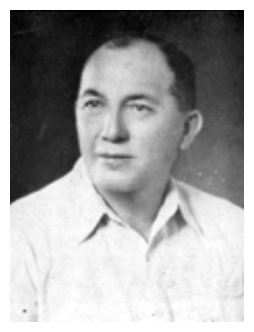
Arriving in the land, he joined Histadrut as a member and was an active worker in Agudat-Poalei-Ha'ets (Wood Workers Union). He was always among the first and most stubborn fighters for securing and bettering working conditions and distinguished himself with his ideas and actions when the workers were on strike.
In 1923, a strike broke out at Krinicin's (the present mayor in Ramat-Gan, who at that time had a carpenter shop in Tel Aviv). The workers decided to hold a meeting at the uncompleted buildings. When the English appeared in order to disrupt the meeting, Henek lowered the gate that separated the area and thus barred the way of the English policemen on horseback. While the English police commandant Riks stopped, Henek Kalka ran to him and threw him off his horse. A great riot occurred and the workers ran away, Henek with them.
In 1927 H. Kalka became independent and self employed. Then he became active in Hitachadut Baalei Melakha (Association of Craftsmen) in Tel Aviv. He organized the cabinetmakers so that they would be a substantial power.
In 1929/31 the economic situation in the country became very difficult. The cabinet makers remained without work and many of them literally did not have anything to eat. H. Kalka, good-hearted by nature, provided great help to his needy comrades then. He gave in secret, anonymously. Goodness and a willingness to help always accompanied his way.
In 1936 when the Italian-Abyssinian War broke out and the situation became worse, H. Kalka took the initiative to care for his fellow unemployed cabinetmakers. A year later (1937), when the situation became even worse, H. Kalka was elected to the Central Committee of Hitachadut Baalei Melakha. He filed a proposal to create a cooperative store so that the members would be able to buy their products at cheaper prices. With his initiative, the co-op was created and no one left from there with empty hands. H. Kalka said to give everyone products they needed and he would pay for them.
He also decided to create a loan institution and, with his initiative, an interest-free loan fund was created that later became the General Fund of Hitachadut Baalei Melakha.
H. Kalka cooperated in other areas of social assistance, too. Thus, for example, when people received various fines, and had to serve time in jail because they did not have the money to pay the fines, H. Kalka would personally go the person owed the money and speak and reason with him so that he would waive the fines. In many cases, H. Kalka literally made a sacrifice for the arrestee and many times paid the fines of strangers out of his own pocket in order to free them from jail.
In 1952 H. Kalka proposed that a new building be built for Histadrut and thanks to his initiative, the building of Heykhal haMelakha [literally “Palace of Craftsmanship”] began. The building carpenters' section contributed 15 thousand pounds for this purpose and Kalka took care that the building would be well and beautifully finished, just as if it were his own home.
H. Kalka was not only a good community worker, but a good man, father and grandfather, too.
His many-faceted and efficient community work was interrupted on the 5th of May 1958. The building carpenters have perpetuated his name by founding a special loan fund that carries the name “Henek Kalka Fund.”
Translated by Sara Mages
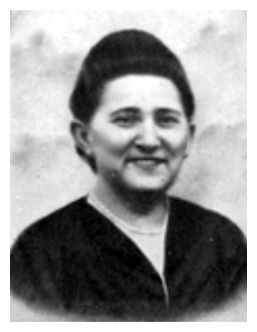
She arrived in Israel in 1922 with a group of halutzim [pioneers], that most of them came alone, without a wife and without a father and mother. These were years of many hardships. Many could not find a job for a long time. Some engaged in arduous work,
[Page 561]
in digging sand and gravel and transporting them by camels. The oppressive loneliness, the lack of a warm corner to pour out the heart and vent the anguish, affected everyone to the point of leaving the country.
Yehoshua Kalka built his nest with his spouse Sarah, a faithful and kind-hearted wife, and slowly lights began to twinkle from this nest. The Radomskers were drawn like birds to this nest, and the living spirit in the nest was Sarah. A wise woman, knowledgeable on the world's problems, educated and experienced in life. Her heart and mind worked together, she brightened everyone's face, many longed to see her and take her advice that she gave with consideration and saw things clearly. Her home was open to all in need, in the best sense of the word, and she aspired to refresh their hearts and give them the best. Sarah was a mother and sister to many: she never wavered - she secretly gave as much as she could to one, a loan to another and a guarantee for a loan to another, with humility and without self-importance.
.
Hearing about the difficulty of a girl from Radomsk on the eve of her wedding, Sarah worked with all her might to fulfill the mitzvah of hachnasat kallah and managed to provide the bride and groom with all that they needed.
And here is the case of Berel Rosenstein z”l. During the difficult time Berel had to leave Israel and to travel to Russia. Later, after he was harmed by this, he returned to Israel penniless. He found the door of Sarah's house open to him and was considered one of her family members. When Berel was killed in a work accident, grief fell on the Kalka family and shadows of grief enveloped the walls of their home.
In the following years, when the number of families from Radomsk increased, and each built a home for his wife and children, Kalka's home was the source of news and a meeting place to spend time. The cup of tea was served with pleasant cheerfulness and the meetings at Sarah's house were enjoyable.
But the pleasure did not last forever. Sarah suddenly fell ill at a young age with a deadly and debilitating disease. She suffered badly and, when she recovered a little, she gathered strength to hold on to life and invested herself in various matters of help. But slowly the disease overwhelmed her. On 17 February1943, death freed her from her suffering.
Translated by Sara Mages
In 1905, David Krojze was known in Radomsk as a public activist and one of the leaders of Poalei Zion movement. He was among the initiators of the self-defense against rioters, and the activists of the well-known seamsters' strike. During the First World War he was among the founders and activists of Tze'irei Zion, the cultural association Kultura, and the first for Zionist and public activity in many fields. In all areas of his activity, he always excelled in his kindness, devotion, loyalty, and more than anything - his love for others.
He, and his wife, immigrated from Radomsk to Israel at the beginning of the Third Aliya and he got a job in Tel Aviv. First, he applied for a hired job as a seamster, and later he joined the founding group of a shoe manufacturing cooperative called Toelet (the cooperative was established by the initiative of David Bloch-Blumenfeld, one of the leaders of the Workers' Fund in Eretz Yisrael). David Krojze was among the cooperative's managers and operatives for all its years of its existence.
David was down on his luck all the years of his life in Israel. For a certain period, he engaged in delivering milk among his townspeople and acquaintances. Then, he opened a restaurant and a kiosk inside the meager shack where he lived with his family. All his years in Israel he lived in this shack in poor sanitary conditions and was unable to pull himself from a life of hardship and hard work. The bitter fate did not stop harassing him even in the last years of his life, and added hardships and illnesses to him, and to his son.
Despite this, David Krojze did not despair and remained and remained faithful to the beginning of his path in Radomsk. He remained loyal to the General Workers' Union that he had been a member of since its founding, and loyal to his party, Ahdut HaAvoda, that he was one of its first founders. He was one of the first and founders of the Organization of Former residents of Radomsk in Tel Aviv. He invested the best of his energy and ability in his activity and found in it some consolation for his personal troubles and pains. He contributed his time and energy for the gathering of the material and the preparatory work for the publication of this Yizkor Book for the martyrs of Radomsk, but did not get to see the completed and printed book with his own eyes.
He passed away in Tel-Aviv on the holiday of Succot 5726, October 1965.
It is a pity for those who are gone and no longer to be found.
Translated by Gloria Berkenstat Freund
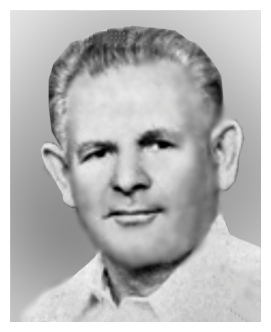
Dovid Krojze took his first step in life at the time when the political-communal life in Eastern Europe was fermenting with the revolutionary events of 1905. This naturally had an effect, too, on the Jewish population in general and on the young workers. He was very quickly drawn into the life of the Socialist Party, became active in all actions, strikes, discussions, secret meetings and self-defense. When Radomsk became too crowded for him and politically unsafe, he departed for Lodz, to which a stream of thousands of Jewish workers from the entire province were led.
Dovid Krojze worked at his trade in Lodz and was very active in party work. He
was persecuted for this by various police “tricks.” However, he did
not surrender. After the suppression of revolutionary ferment of 1905, when
those who were saved from the gallows or Siberia came back to their homes,
Dovid Krojze came back to Radomsk, too.
[Page 562]
The organized and class-conscious Jewish youth created various cultural
institutions – in Radomsk, Hazamir arose. Dovid Krojze takes
an active part in this very organization, chiefly in the dramatic section.
Later he takes an active part in the founding of Kultura and takes
part in the political and cultural life of Jewish Radomsk.
After the Balfour Declaration, when thousands of Jewish young people are drawn through various paths and detours to Eretz-Yisroel, Dovid Krojze and his young wife are drawn there, too. In 1921/22 they arrive in Eretz-Yisroel, as members of Zeiri-Zion in Radomsk. Here Dovid Krojze did not belong to those for whom absorption in the country came easily. The years of adjusting himself to the realities of Eretz-Yisroel were difficult, very difficult. He was weak in health and in addition he had a wife and small children; he suffered through the difficult years of unemployment. He suffered physically and materially, but he did not give in spiritually. Once, “the bridges under me are burned,” he did not think about, G-d forbid, returning to gulas (exile). On the contrary, he made an effort to bring his family here. His belief in Zionism, in the revival of the Jewish people in its land, strengthened still more and more in his heart, despite his personal situation.
The number of Radomskers in Eretz-Yisroel becomes greater; the organization of landsleit is created. Dovid Krojze becomes a member of the managing committee and for many years was one of the active members of the organization and active in the central committee of the Interest-Free Loan Fund.
In his last years he dedicated himself to the work of this Yizkor Book in addition to donating his very interesting memories that will serve as a mirror for the former life in Jewish Radomsk and Poland.
Alas, death cut short his life and he did not live to see this Book of Memories.
D. K.
Translated by Sara Mages

At the beginning of 1925, he immigrated to Israel with his wife Devorah daughter of Yissachar Dov Witnberg, and their three young children. His two older sons remained in the Diaspora to complete their studies. The conditions they encountered in first years of their stay in Israel were exceedingly difficult. There was no livelihood and the distress was great. With the passage of time, the father of the family got a clerical job that its salary was not paid on time.
During the great crisis of 1928, many immigrants returned to the diaspora, including many of their relatives- sisters and brothers-in-law. Shlomo was also faced with the question of whether to leave Israel, but despite the difficult situation he decided that the family would not return to the Diaspora. Even on the most difficult days, he did not complain, did not grumble, or get angry. He has done everything possible not leave Israel, because he has always been a devoted Zionist with every fiber of his being. He rejoiced with every progress, even the smallest, in the building of the people and the country.
Devorah Krakowski also hurried to integrated in Israel despite the arduous work. She quickly learned the Hebrew language, and faithfully helped her husband in all the difficult situations they had gone through.
And indeed, both were privileged to reach the fulfillment of their national ambition in the establishment of the State of Israel.
Devorah Krakowski passed away on 8 Tishri 5711 (19 September 1950) and her husband Shlomo on 20 Shevat 5717 (22 January1957).
While their parents were still alive their sons, who live in Tel Aviv, changed their surname to Kariv.
Translated by Sara Mages

One of his sons, Yitzchak, perished in the Holocaust, and his second son, Shlomo, was active in the ranks of the Haganah from the age of fifteen. He fell in the battle on Sejera (Ilanya) on 7 Tamuz 5708 (1948). My husband, and other parents, founded the synagogue “Yad L'Giborei Yisrael” in the courtyard of the Technion in Haifa. Every Shabbat, the bereaved parents gather in this synagogue to study Mishnayot and Torah and commune with the memory of their beloved sons.
Yehoshua-Eliezar Rabinowicz passed away in 1958. May his memory be forever.
Translated by Sara Mages
My mother, Sarah Rubinsztajn z”l (née Aharonowich) was also a native of Radomsk. She was the daughter of R' Yitzchak Aharonowich z”l – of the first members of Hovevei Zion movement. My mother made aliyah to Israel in 1922 (a year after my father) with her daughter Ruchama, who was then a year and a half old.
My father, mother and sister constituted the first family from Radomsk in Tel Aviv (all the rest were singles). Their humble shack served as a parental home for all the singles from Radomsk, and a meeting place for them on the Sabbath and holidays. Many of those who met at my parents' house later started families in Israel and my mother was like a mother to them.
My parents had a restaurant in Neve Shalom (on the border between Yaffo and Tel Aviv). All the Radomskers came to eat there and hear biblical discourse and jokes from my father, who was full of wisdom and stories from the way of life in Radomsk.
In 1925, my parents moved to Haifa and here their home became a meeting place for all the former residents of Radomsk in the city and the surroundings. My father served as an activist in the Benevolence fund of the Organization of Former residents of Radomsk in Haifa and excelled in this role with exemplary accuracy and order. He dedicated himself, with his wife's help' to various acts of help and relief for the townspeople, and both observed the mitzvah of hospitality in its full meaning.
At first my parents were successful in their work in Haifa, but later they were beset by family hardships and their livelihood also became a hardship. Despite this, my father's vitality did not pass until the end of his days. He did not lose his sense of humor and met every person with a cheerful face and eagerness.
My mother Sarah passed away in Haifa on 20 Shevat 5726 (2 October 1966) at the age of seventy-two. My father passed away in Haifa four months later, on 20 Sivan 5726 (8 June 1966) at the age of seventy-four.

Rokhma Rubinsztajn
May the memory of my parents and my sister be with us forever!
Translated by Sara Mages
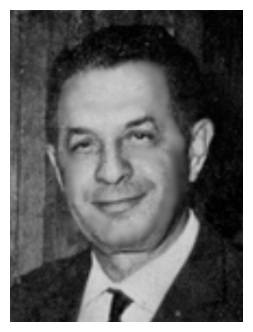
His first stop in Israel was Jerusalem where he lived for nine years and experienced many hardships (there were times when he suffered hunger and deprivation there).
In mid 1930s, he moved to Tel Aviv and the surrounding area, and together with partners established a carpentry shop under the name “Fiszlewicz and Eisenberg.”
Over the years it became one of the largest carpentries in Israel and employed dozens of workers. Despite this success, Moshe Leib remained a workman by nature.
In 5727, he suffered several times from heart failure and was finally confined to a sickbed. On Passover eve 5727 (24 April 1967) his heart stopped forever.
Translated by Sara Mages
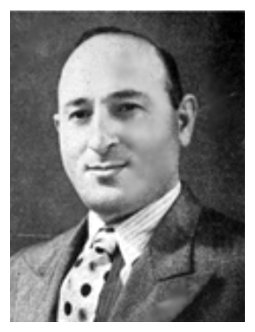
He was among the first members of Poalei Zion party in our city, and among the most active members in the Zionist-Socialist work of that time. He joined a group that found an illegal way to reach Eretz Yisrael, and on 20 August 1918 they arrived in Yaffo. Most of the group members remained in Tel Aviv (1918-1920). In 1920, he joined a group of halutzim [pioneers] who engaged in construction work, but Berl, together with three members, did not want to stay in the city and turned to Galilee, to the Tiberias-Zemach Road.
In the first days they suffered a lot until they got used to the hard physical work. Berl was the only one who did not complain of muscle pain and never uttered a word. He accepted all his sufferings with love. He quickly integrated into the work and was liked by all. The workers lived eight in one tent. They lay on mats and with only a small pillow under their heads. Berl did not have pillow, he put his work shoes under the mat and slept soundly without interruption. When new immigrants arrived to join the work, Berl hosted them in the crowded tent with a happy soul.
Such was Berl on the Tiberias-Zemach Road. He drained swamps, worked in construction, in the port, and in all other jobs he engaged in Israel.
In 1930, Berl left Israel to travel a little in the world and in Soviet Russia, to see what is happening in other nations and how they build their lives. When he was in Poland, he “jumped” for a few days to his home, to Radomsk. He returned to Israel full of impressions, refreshed and at peace with himself, and returned to a life of work and creativity as before.
On May 5, 1940, the excavations for a new building on the seashore in Tel Aviv collapsed. Dov-Berl Rozensztajn was among the workers who perished in this landslide. He fell on his post - the post of work and construction.
Translated by Sara Mages
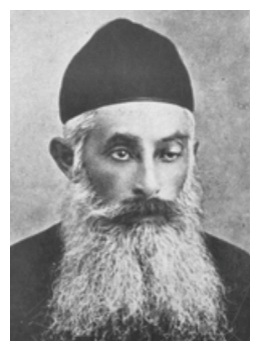 |
 |
|
JewishGen, Inc. makes no representations regarding the accuracy of
the translation. The reader may wish to refer to the original material
for verification.
JewishGen is not responsible for inaccuracies or omissions in the original work and cannot rewrite or edit the text to correct inaccuracies and/or omissions.
Our mission is to produce a translation of the original work and we cannot verify the accuracy of statements or alter facts cited.
 Radomsko, Poland
Radomsko, Poland
 Yizkor Book Project
Yizkor Book Project
 JewishGen Home Page
JewishGen Home Page
Copyright © 1999-2025 by JewishGen, Inc.
Updated 20 Nov 2024 by JH